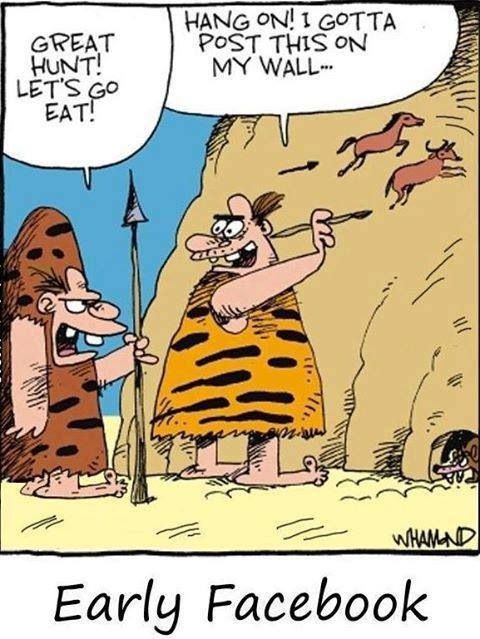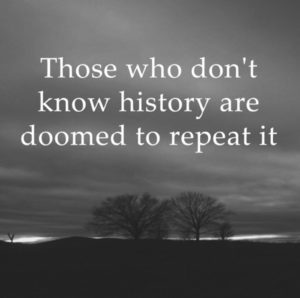
There is a lot we can learn from history if we’re open to it. Even though our ancestors faced different circumstances, they have faced trials and tribulations that we can identify with. By being a witness to their stories, we’ll benefit from the wisdom they left behind. (Estimated reading time: 7 minutes)
“Learning history is easy, learning it’s lessons seems almost impossibly difficult.”
— Nicolas Bentley
“Like a grand and miraculous spaceship, our planet has sailed through the universe of time; and for a brief moment we have been among it’s passengers. But where are we going? And what kind of future will we discover there? Surprisingly, the answers lie in our past.”
The eloquent voice of Judi Dench boomed these words through the speakers of our ‘Time Machine’ as we journeyed on Epcot’s Spaceship Earth in Disney World. The ride took us back in time to witness the origins of prehistoric man, then forward through other phases in human history like Ancient Egypt, Greece, Rome, the Industrial Revolution, and many more.
The fifteen-minute ride inside Epcot’s massive geosphere leaves curious passengers spellbound as they marvel at the advancements and breakthroughs in communication that developed throughout history—from the creation of the alphabet to the manufacture of the printing press, all the way through to modern devices like smartphones and the Internet.
As a kid, I found the ride creepy. At various points, you’re enveloped in darkness while in others the animatronics, that look like real people, eerily gaze on you when you’re close enough. But, as a young adult, I grew to appreciate it. The rides broad-brush approach to history left me pondering our progress, and the events that shaped the modern world.

Even a visit to a museum or an archeological site, or reading a work of historical fiction, will make you realize that the road that we walk today is well-worn and there’s a lot we can learn from history. For centuries, millions of others have walked where we now walk. We reap the rewards of those who toiled to invent the devices that make our life convenient and enjoy the rights and privileges that they fought hard to obtain.
Even though our ancestors wore different types of clothing and their circumstances were far removed from what we experience today, what connects us to them are the trials and tribulations of the human experience.
Universal themes such as love, victory, pain, and tragedy are echoed in their stories, and they left behind a trail of wisdom from which we can grow.
Every period is a colored timeline, some short, and some long. A big-picture perspective allows you to connect the dots and understand how the impact of decisions made by key figures catapulted humanity to unprecedented change. For example, Rosa Parks, who refused to give up her seat on an Alabama bus to make room for white passengers sparked a revolution in the Civil Rights movement. On the flipside, Hitler’s hateful ideology led to the death of millions.

You get a sense of the complexity of human nature, nations, and institutions, as well as the power dynamics and political maneuvering that continue to evolve. By understanding the macro-trends, perhaps you can start to grasp where the world is heading while knowing that random and unforeseen events, like the French Revolution or 9/11, can shake the foundation and topple our current reality.
Studying history is a humbling undertaking. We realize that life doesn’t revolve around us and that the world is so much bigger than we ever thought it could be. We are only one of the billions of stars in the constellation of humanity, and it’s up to us shine as brightly as we can by understanding the past and using what we learn to shape the future.
In his book Homo Deus, Yuval Noah Harari says that “the best reason to learn history: not in order to predict the future, but to free yourself of the past and imagine alternative destinies.” You can imagine a better destiny when you’re open to seeing the broader economic, cultural, and social trends of the past and applying them to your own life and current social climate.
Although there’s a lot that we can learn from bygone eras, these are the four most important things we can learn from history, from which I believe we can benefit:
1. Human trends are cyclical: If we examine history, we’ll see that there are recurring cycles in the fields of economics, finance, social, and political phenomenon. British philosopher, John Gray, said, “we’re not moving to a world in which crises will never happen or will happen less and less. We are in a world in which they happen several times during a given human lifetime, and I think that will continue to be the case in any future that we can realistically envisage.” The events that occur in a given period determine social trends.
For example, during World War II, women’s fashion was conservative and followed military-style designs to honor the soldiers who fought at war. In the 1950’s, outfits became more feminine and accentuated the female figure. When we examine the shifts from one epoch to the next, we can understand where our generation stands and how to capitalize on current trends.
2. Nothing good has ever come from war, greed and violence: Throughout history, wars and battles have been fought by the power-hungry to accumulate more fortune, territory, and influence. Some of the biggest tyrants in history, like Genghis Khan of Mongolia, Henry VIII of England, Ivan the Terrible, and Joseph Stalin have shown what the dark side of human nature is capable of. Too many lives were lost in the name of political and religious ideologies. Innocent people were coldly murdered, tortured, and mistreated.
Even though we’re endowed with the ability to reason and exercise self-control, humans have allowed their reptilian instincts of fear and greed to cloud their judgment. What we see in every case, from the tribal wars fought during the Neolithic period to the more recent World Wars, that the end result is bloodshed and broken hearts. When we see the futility in defending with violence, we can choose to eradicate it as a means for protection, and use peace instead.
3. Progress is spearheaded by the brave and unconventional: It takes a special type of person to pierce through the veil of darkness and ignorance of their times. These are the innovators who created marvelous machinery and new technology, and the revolutionaries who shook things up and broke the mold of convention. When we look at the lives of luminaries such as Gandhi, Einstein, Mandela, Da Vinci, and Steve Jobs, we’ll see that they followed unconventional paths and had beliefs that were considered radical by their contemporaries.
It was their self-belief and passion for their causes that set them apart from others. They were trailblazers who showed us what’s possible if we’re willing to act on our dreams and channel our strengths into endeavors that would benefit us, our communities, and the wider world. Nothing extraordinary can come from playing it safe.
4. We are a product of the times in which we’re born: When we learn from history, we’ll see that each period represents a chapter in human history. When you think of the ancient Egyptians, what comes to mind are pyramids, hieroglyphics, tombs filled with treasure, and mummies. The Elizabethan era brings up images of Shakespeare, gowns made of brocade covered in intricate designs, and of course Queen Elizabeth herself, the 1970s will make you think of discotheques, bell bottoms, and hippies. Similarly, we’re living in a phase in history that’s characterized by certain fashion styles, world events, social ideologies, and technological milestones.
We have to understand that we’re merely a product of our times. Whether we realize it or not, our values and tastes are influenced by the zeitgeist. Instead of getting caught up in the bubble of our generation, be aware of how much your personality is your own and how much is a part of the collective. By becoming conscious of this, you’ll understand the deeper motives and psychology of our times and use that knowledge to stand out and appeal to the sensibilities of others.
The best part about studying history is that we get a sense of perspective, and we understand our place in the vast ocean of time. You’ll begin to appreciate why things happened the way that they did in the past and see the larger purpose. Even though the tide is always moving and nothing will ever stand still, eventually everything moves us forward toward our own, personal evolution.
All my best on your journey,
Seline

Reflection Question: What are some important lessons that you learn from history and how did it shift your perspective?
Did you like this post? Sign up below and I’ll send you more awesome posts like this every week.

Hey Seline – I’ve always been a history buff but when I was still in high school I did an in-depth study on WWII. And over a month oft hat time was spent on the Holocaust, I read more books and studied more on that subject than most adults have in their entire life. Learning the stories, seeing what happened, and even being able to walk in some of those places, I connected very deeply with it and the idea that something so horrific can happen again has always stayed with me. it is why I cannot believe how willingly Americans today are turning away immigrants and those seeking asylum. We did this in WWII and are doing it now and even more, innocent blood may end up on our hands!
History is there for us to learn from and sadly I don’t think we have learned all we needed to from the terrors of the Holocaust! 🙁
Thanks for this unique piece.
An intriguing read, i am giving this article an outbound link from my website FITrebel.in! Thanks!!!